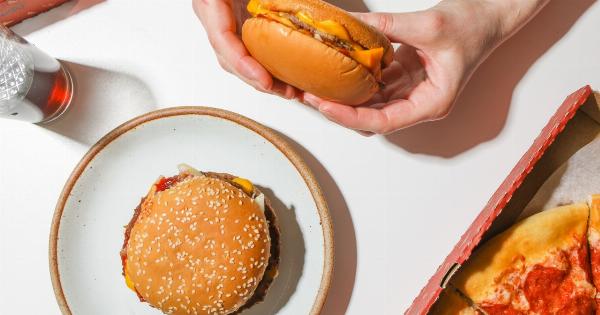Unhealthy eating habits have become a prevalent concern in today’s society, leading to various health issues among children.
However, an important question that arises is: who should be held responsible for a child’s unhealthy eating habits? While both grandparents and parents play vital roles in a child’s upbringing, this article aims to analyze and determine the extent of responsibility each party holds in this matter.
1. The Influence of Grandparents
Grandparents have a significant impact on a child’s life, particularly when it comes to their eating habits. They often play a role in providing meals or snacks for their grandchildren.
However, it is essential to consider the potential factors that contribute to unhealthy eating choices.
2. Parental Influence on a Child’s Eating Habits
Parents play a critical role in shaping their child’s eating habits right from the start. They are responsible for providing the necessary nutrition and teaching their children about healthy food choices.
However, various factors may influence parents’ ability to enforce healthy eating habits.
3. Role Modeling
Both grandparents and parents serve as role models for children, and their eating behaviors significantly impact the choices made by the younger generation.
Children tend to imitate the eating habits they observe in their immediate environment, whether it be at home or during visits to their grandparents’ house.
4. Food Availability and Accessibility
The availability and accessibility of food significantly influence a child’s eating habits. Both parents and grandparents have control over the types of food they make readily available to the child.
If unhealthy options dominate their choices, it becomes increasingly challenging for the child to develop healthy eating habits.
5. Cultural Factors
Grandparents and parents often pass down cultural traditions and dietary preferences to the next generation. These cultural factors can either support or hinder the development of healthy eating habits in children.
Understanding these influences is crucial in assessing responsibility.
6. Nutritional Education
Parents bear the primary responsibility for providing adequate nutritional education to their children. It is their role to guide their child’s food choices, educate them about nutrition, and instill healthy eating habits.
However, grandparents can play a supporting role in reinforcing these teachings.
7. Division of Responsibility
When it comes to a child’s eating habits, it is important to understand the concept of a division of responsibility.
While parents are responsible for what food is offered and where, children are responsible for deciding how much they eat and whether to eat at all. Both parents and grandparents need to understand and follow this division to establish a healthy relationship with food for the child.
8. Communication and Collaboration
In order to ensure the child develops healthy eating habits, effective communication and collaboration between grandparents and parents are essential.
Open discussions, sharing concerns, and coming up with mutually agreed-upon strategies can help create a supportive environment for the child’s nutritional needs.
9. Balancing Indulgence and Moderation
While it is crucial to promote overall healthy eating habits, occasional indulgence is a part of life. Both grandparents and parents need to strike a balance between allowing treats and ensuring the child’s overall nutritional well-being.
Collaboration in setting boundaries is important to prevent excessive indulgence.
10. Conclusion
In conclusion, both grandparents and parents share responsibility for a child’s unhealthy eating habits.
Grandparents play a significant role as influencers and provide meals or snacks, while parents are responsible for establishing healthy eating habits from an early age. Effective communication, collaboration, and a shared commitment to the child’s well-being are necessary to promote a balanced and nutritious diet.































